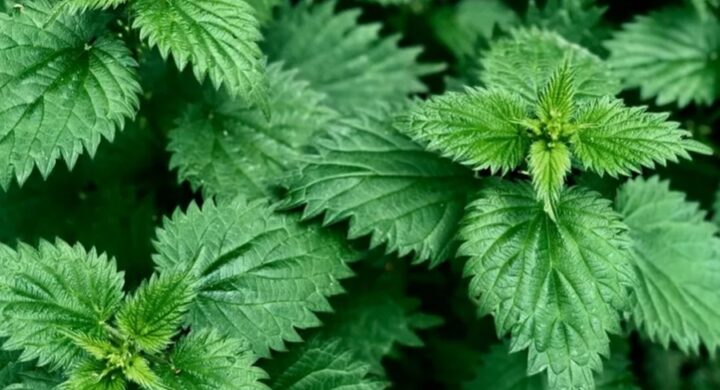
6 good reasons to drink nettle tea
The stinging nettle is full of valuable nutrients that promote our health. No wonder that the prickly plant protects itself with small stinging hairs. We reveal which ailments you can treat with nettle tea.
What’s in nettle tea?
Most of us probably associate stinging nettles with rather painful experiences. After all, who as a child didn’t burn themselves once or twice on nasty nettles while romping around in the fresh air? “Burnt” isn’t really the right word, because what causes us such burning pain when we touch the leaves of the stinging nettle are actually small hairs on the plant. These stinging hairs, also called nettles, are hollow and break with the slightest touch. Touch the stem or leaf tops of the plant, the stinging hairs break and their sharp edges pierce the top layer of skin. The nettles then inject their formic acid content through the break point into the microscopically small wound. The result: stabbing pain and hives.
The stinging nettle protects itself from predators with its acidic nettles. And the plant can really use this protection, because it is full of nutrients right down to the tips of the leaves. In fact, nettle is so nutritious that it is used as a potent medicinal herb. The tea made from dried nettle leaves in particular has a soothing effect on many ailments and can strengthen your health. Stinging nettle mainly contains per 100 grams
Egg White (7g)
Calcium (713 mg)
Potassium (475 mg)
Vitamin C (333mg)
Vitamin B1 (200 micrograms)
Vitamin B3 (800 micrograms)
Amino acids such as arginine, leucine, lysine
Fatty acids such as linoleic acid, linolenic acid, oleic acid
Less is more
But don’t overdo it with the nettle tea. You should really only drink the tea from the medicinal plant if you have problems. More than 250 milliliters are not recommended per day, even if you have symptoms. Regular or even daily consumption is not recommended, as this can lead to stomach pain, heartburn or diarrhea.
6 health benefits of nettle tea
1. Anti-inflammatory and pain-relieving
Dried nettle leaves contain many flavonoids. Such secondary plant substances are responsible for the coloring in many types of vegetables and fruit. Grapes, green tea or aubergines contain plenty of flavonoids. The flavonoids in the nettle have an antioxidant effect and bind free radical oxygen compounds. This prevents cell damage and reduces inflammation in the body. Flavonoids also have a pain-relieving effect. Nettle tea is therefore popular as a home remedy for pain relief and anti-inflammatory joint pain during severe rheumatic or arthritic flare-ups.
2. Helps with bladder infections
The ingredients of nettle have a diuretic effect. If you suffer from a bladder infection or want to flush out a urinary tract infection, nettle tea can help you get better in a natural way. Bacteria and infections can be excreted in the urine, and the increased urge to urinate causes more bacteria to be eliminated.
3. Works against stomach and menstrual problems
The anti-inflammatory and analgesic effects of the ingredients can also be effective for lower abdominal pain and stomach cramps. A cup of fresh nettle tea can also be helpful for menstrual back pain. However, do not drink too much of the diuretic and dehydrating tea.
4. Stimulates digestion
Stinging nettles and the tea made from the dried leaves contain bitter substances. These stimulate digestion at every station of the digestive system. More saliva is already produced in the mouth as a reaction to the bitter substances. Gastric juice production picks up speed in the stomach, while the increased production of bile in the intestine ensures better metabolism and healthy digestion. Nettle tea can therefore also have beneficial effects for symptom-free digestion.
5. Works against cellulite
Almost every woman has cellulite – some more, others less. The extent to which we are affected by the so-called orange peel effect is largely genetic. However, exercise and a healthy diet are helpful ways to counteract or even prevent the unwelcome dents. In addition, nettle tea can provide relief: Due to its draining effect, it ensures that stored water is transported out of the body cells. In combination with a healthy, low-calorie diet, we can tighten our connective tissue.
6. Healthy effect on the prostate
The active ingredients in the leaves of the stinging nettle are not only effective for complaints of the urinary tract, bladder and kidneys, but can also have positive effects on the prostate. Among other things, the prostate gland is responsible for producing seminal fluid in which the sperm cells can move during ejaculation. One study found that nettle extract improved symptoms in patients with a benign enlarged prostate. As part of a holistic treatment for prostate diseases, nettle tea can sometimes make a good contribution.
Categories: General
